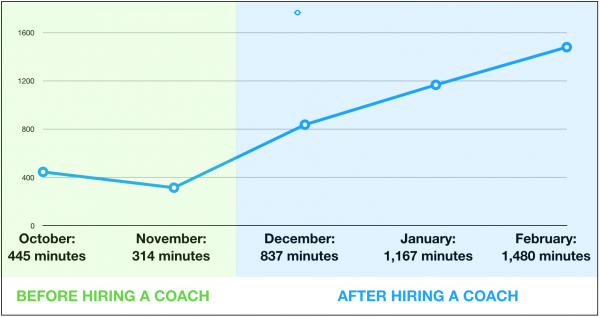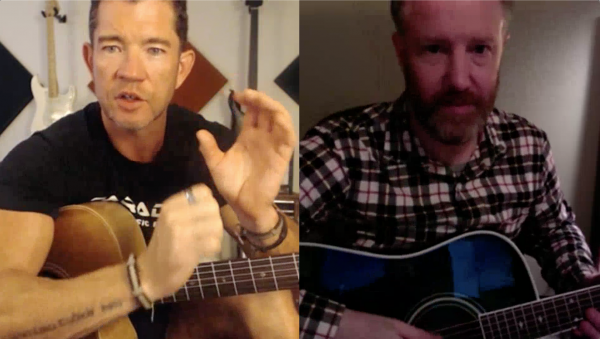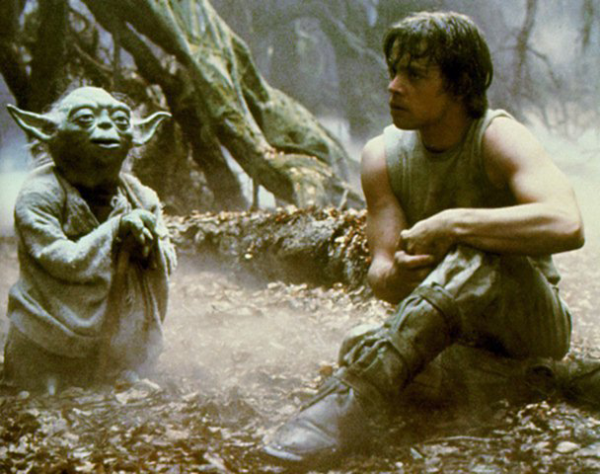Today I want to talk about the practical steps you can take to actually take your writing to the next level. By this I mean:
- Establish rock-solid creative habits.
- Define your creative identity.
- Get radically clear on your priorities of what you want to create.
If you are like many writers I speak to, you feel stuck for some of these reasons:
- You are busy amidst a day-job, managing your family, attending to your health, and a heap of other responsibilities.
- You have been trying to trying various tactics to focus on your writing, but for whatever reason, the habits never stick.
- You feel alone in your creative work. You have no colleagues, no feedback, no accountability, and no one who shares your creative vision.
- You have too many ideas for what you want to write. So you get stuck in analysis paralysis, unable to move ahead, or you hop from one thing to the next, but never really finishing anything to your satisfaction.
You have a deep passion for what you write. Yet, you feel distant from your goals of writing, publishing, reaching readers, and feeling fulfilled as a writer.
I want to share an example of how I have been using the following things to solve this for myself, and radically shift one of my own creative habits. I want to talk about:
- Coaching
- Mentorship
- Accountability
And how these things helped me develop powerful creative habits, and a sense of radical clarity in my goals.
Then I want to tell you about a program I’m running that can help you get these things for your writing life. Let’s dig in…
I was stuck
A few months ago, I wrote about my goal of finally learning how to play the guitar, after a quarter century of dabbling with it. The post was called “What Practicing Guitar Every Day for a Year Taught Me About the Creative Success.”
In truth, as I was finishing up that year of playing guitar every day, I was losing steam. Here I was, practicing for months on end, but I found that I:
- Got stuck in the same bad habits.
- Had so much advice from the internet (videos, lessons, articles) on what to practice, I didn’t know how to choose. I would bounce from one idea to the next.
- I felt like crap about my playing because all I could see was how much I didn’t know, and because I only practiced alone, I wasn’t sure how to break out of the rut.
- I worried if I was committed enough to really achieve my goal. I had no idea how other guitarists were doing this, and how one moved from one milestone to the next.
It reminded me of that line in the theme song from Friends:
“It’s like you’re always stuck in second gear…”
I actually just Googled this, and read this wonderful explanation of that line from a mechanical engineer:
“Second gear typically covers the range from about 5 MPH up to about 25 MPH… If your transmission malfunctions and can’t shift out of second gear, you can get around town, awkwardly, but can’t get up to highway-cruising speeds. This situation is used as a metaphor for the feeling of [being] unable to make progress on the bigger and better things that they dream of.”
I decided to invest in a guitar coach. Now, this was not an easy decision because, truth be told, a big part of me preferred to use that money to buy a shiny new guitar.
One that would look amazing. Play amazing. Hold it’s value. Something I could look in the mirror and say, “I’m a guitar player!” And then do this massive air guitar motion.
But I didn’t do that.
Instead, I invested in a coach, and this simple chart will illustrate why. It tracks the number of minutes I practiced guitar each month before hiring the coach, and after:

October was an average month for me before I hired a coach. I was playing about 15 minutes a day. But it was all over the map. Some days I played 4 minutes, other days 30 minutes.
In November, I was hitting a slump, and feeling less and less motivated. I played maybe 10 minutes a day on average.
Then I hired a coach. He’s a guy who shares loads of instructional videos on YouTube. His name is Mark McKenzie, and he is known online as “Mark the Guitar Guy.” I checked out his website, and found out that he offered lessons via Skype. Now, I live in New Jersey. Mark? He lives in New Zealand. This is what our first lesson looked like:

This is what it felt like:

Having a mentor and accountability changed everything. In December I doubled how much time I spent practicing. From there, it just grew.
Each week I met with Mark. Each week, I found myself:
- Doubling down on my guitar-playing habits
- Having more clarity on what I should focus on.
- Having accountability to push ahead and reach new milestones.
- With an outlet to discuss any confusion or doubt I had.
- Celebrating my progress, instead of worrying about feeling stuck.
This past month I spent a full 24 hours practicing guitar. An entire day! What’s more, I feel a sense of momentum. My current guitar practice routine is to play for a minimum of 45 minutes per day. Just the other day, Mark and I were discussing how to get to an hour a day. It sounds small, but think about that: what if you practiced your craft 25% more often, but that only required an extra 15 minutes of time. What would the cumulative creative growth be over the course of a year?
Thanks!
-Dan
